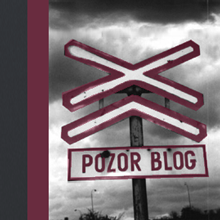Is American Democracy at Risk?
The best and brightest on American democracy suggest that democracy is at risk because of /us/, because we are poor citizens. This is consistent with a whole range of studies claiming we are disengaged from politics and American democracy is at risk. And who do they say is most at fault: young people. "The grim reaper steals away the greatest generation" and replaces them with … well, you.
Pundits say citizenship is the solution. George W. Bush says citizenship is the solution.
What does it mean to be a good citizen?
Civics texts of the 1950’s shows us what a good citizen is:
- A good citizen obeys the law
- A good citizen "stands tall"
- A good citizen "eats meat"
My research is on public opinion, surveys that ask citizens what is important to them:
Citizens were asked "To be a good citizen, it is important to "
and asked to label
- Vote
- Be active in associations
- Obey the law
- Never evade taxes
- Keep watch on government
- Understand others
- Serve in the military
- Buycott
- Support worse off in the world
- Support worse off in the United States
These divide into two clusters, some that emphasize duty:
- Vote in elections
- Obey the law
- Never evade the law
- Serve in the military
And others that emphasize engagement:
- Active in associations
- Keeping watch on government
- Understand others
- Buycott
- Support the worse off in the US
- Support the worse off in the World
It is not that we are becoming less good citizens, but that we are becoming different kinds of good citizens. The WWII generation emphasizes duty way up at the top and emphasizes others less much. Younger citizens emphasize engagement. A lot of the criticisms of young people and declining citizenship in America are the result of our focus on the things that are declining without attention to the things that are improving. There is a nostalgia for the 1950’s but the 50’s were not such a great place for everybody.
Despite the fact that we have a lot of politicians on television who apparently have no tolerance, our understanding of citizenship is changing toward tolerance.
Among the engaged citizen, the goal is not to be active because it is a duty but for a reason:
- Does it help others?
- Does my effort make a difference?
- Am I directly engaged?
- Do I trust the organization?
- Is it cool; are my friends doing ?
Older kinds of participation (working for a party, voter turnout) /are/ declining among the young. It is empirically true. But it is because young people sense that their voice in these realms is not particularly (and when young voters do encounter politicians who behave differently, like Obama or in a sense, Colbert, they get very excited).
In other realms, Americans are more politically active than ever: young people are more than twice as likely to be involved in this regard. New activity is counterbalancing the decline in traditional forms of participation.
Survey asked how useful the internet was for particular tasks. Over 1/2 of the American public says that the internet sometimes helps them gain information about/understand politics. Older generations suggest that young people do not use newspapers and therefore do not know about politics. (Saying that is like saying that because young people do not wear watches, they do not know what time it is). Engaged citizens are much more likely to use the internet politically.
The good news is that the bad news is wrong. Democracy has some problems but it will probably be ok.
- Youth volunteerism is up and it continues into adulthood
- We are developing a more assertive, activist definition of citizenship
- Participation continues between elections
- But… the young need to vote more; we need reforms to match the new electorate rather than the old electorate. One of the reasons why people do not vote is that parties want them to behave like their grandparents do.
- Parties need to adapt to n ew voters and motivations.
The result can be to strengthen democracy, to make the good news even better.
